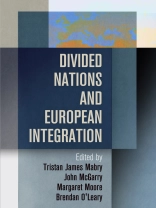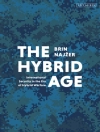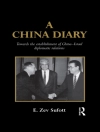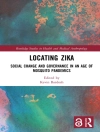For ethnic minorities in Europe separated by state borders—such as Basques in France and Spain or Hungarians who reside in Slovakia and Romania—the European Union has offered the hope of reconnection or at least of rendering the divisions less obstructive. Conationals on different sides of European borders may look forward to increased political engagement, including new norms to support the sharing of sovereignty, enhanced international cooperation, more porous borders, and invigorated protections for minority rights. Under the pan-European umbrella, it has been claimed that those belonging to divided nations would no longer have to depend solely on the goodwill of the governments of their states to have their collective rights respected. Yet for many divided nations, the promise of the European Union and other pan-European institutions remains unfulfilled.
Divided Nations and European Integration examines the impact of the expansion of European institutions and the ways the EU acts as a confederal association of member states, rather than a fully multinational federation of peoples. A wide range of detailed case studies consider national communities long within the borders of the European Union, such as the Irish and Basques; communities that have more recently joined, such as the Croats and Hungarians; and communities that are not yet members but are on its borders or in its ‘near abroad, ‘ such as the Albanians, Serbs, and Kurds. This authoritative volume provides cautionary but valuable insights to students of European institutions, nations and nationalism, regional integration, conflict resolution, and minority rights.
Contributors: Tozun Bahcheli, Zoe Bray, Alexandra Channer, Zsuzsa Csergő, Marsaili Fraser, James M. Goldgeier, Michael Keating, Tristan James Mabry, John Mc Garry, Margaret Moore, Sid Noel, Brendan O’Leary, David Romano, Etain Tannam, Stefan Wolff.
Tabela de Conteúdo
Contents
Introduction. John Mc Garry and Brendan O’Leary
Chapter 1. Divided Nations and Challenges to Statist and Global Theories of Justice
Margaret Moore
Chapter 2. Forked Tongues: The Language Politics of Divided Nations
Tristan James Mabry
Chapter 3. Kin-State Activism in Hungary, Romania, and Russia: The Politics of Ethnic Demography
Zsuzsa Csergő and James M. Goldgeier
Chapter 4. European Integration and the Basque Country in France and Spain
Zoe Bray and Michael Keating
Chapter 5. Albanians Divided by Borders: Loyal to State or Nation
Alexandra Channer
Chapter 6. The Kurds and EU Enlargement: In Search of Restraints on State Power
David Romano
Chapter 7. European Integration and Postwar Political Relations between Croatia and the Bosnian Croats and Serbia and the Bosnian Serbs
Marsaili Fraser
Chapter 8. The Divided Irish
Etain Tannam
Chapter 9. Germany and German Minorities in Europe
Stefan Wolff
Chapter 10. Ties That No Longer Bind: Greece, Turkey, and the Fading Allure of Ethnic Kinship in Cyprus
Tozun Bahcheli and Sid Noel
Conclusion: The Exaggerated Impact of European Integration on the Politics of Divided Nations
John Mc Garry and Brendan O’Leary
List of Contributors
Index
Acknowledgments
Sobre o autor
Tristan James Mabry is Assistant Research Professor in the Department of National Security Affairs at the Naval Postgraduate School. John Mc Garry is Professor of Political Studies and Canada Research Chair in Nationalism and Democracy at Queen’s University. He has coauthored and coedited several books with Brendan O’Leary, including The Future of Kurdistan in Iraq, also available from the University of Pennsylvania Press. Margaret Moore is Sir Edward Peacock Professor in Political Theory at Queen’s University and author of The Ethics of Nationalism and Foundations of Liberalism. Brendan O’Leary is Lauder Professor of Political Science at the University of Pennsylvania and Professor of Political Science at Queen’s University Belfast.












